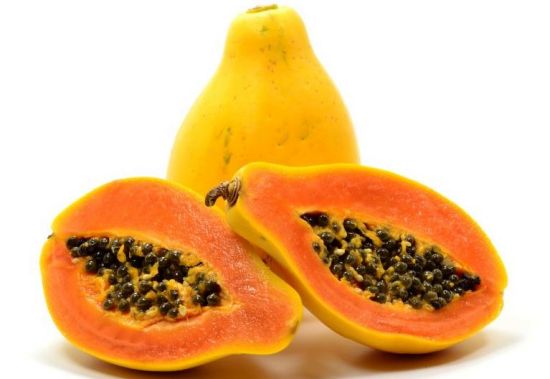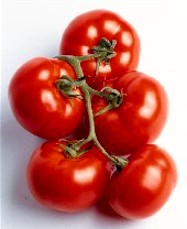The papaya (/pəˈpaɪə/ or US /pəˈpɑːjə/) (from Carib via Spanish), papaw, (/pəˈpɔː/) or pawpaw is the fruit of the plant Carica papaya, and is one of the 22 accepted species in the genus Carica of the plant family Caricaceae.
Papaya is native to Central and northern South America and has become naturalized throughout the Caribbean Islands, Florida and several countries of Africa. Additional crops are grown in India, Australia, Malaysia, Indonesia, Philippines, and the U.S. state of Hawaii.
The papaya tree like plant, with a single stem growing from 5 to 10 m (16 to 33 ft) tall, with spirally arranged leaves confined to the top of the trunk. The lower trunk is conspicuously scarred where leaves and fruit were borne.
Papaya is native to Central and northern South America and has become naturalized throughout the Caribbean Islands, Florida and several countries of Africa. Additional crops are grown in India, Australia, Malaysia, Indonesia, Philippines, and the U.S. state of Hawaii.
The papaya tree like plant, with a single stem growing from 5 to 10 m (16 to 33 ft) tall, with spirally arranged leaves confined to the top of the trunk. The lower trunk is conspicuously scarred where leaves and fruit were borne.
Nutritional value per 100 g (3.5 oz) Energy 179 kJ (43 kcal) Sugars 7.82 g Dietary fiber 1.7 g Vitamins Vitamin A equiv.
(3%)274 μg89 μgThiamine (B1) Riboflavin (B2) Niacin (B3) Folate (B9) Vitamin C Vitamin E Vitamin K Minerals Calcium Iron Magnesium Manganese Phosphorus Potassium Sodium Zinc Other constituents Lycopene 1828 µg











0 Comments